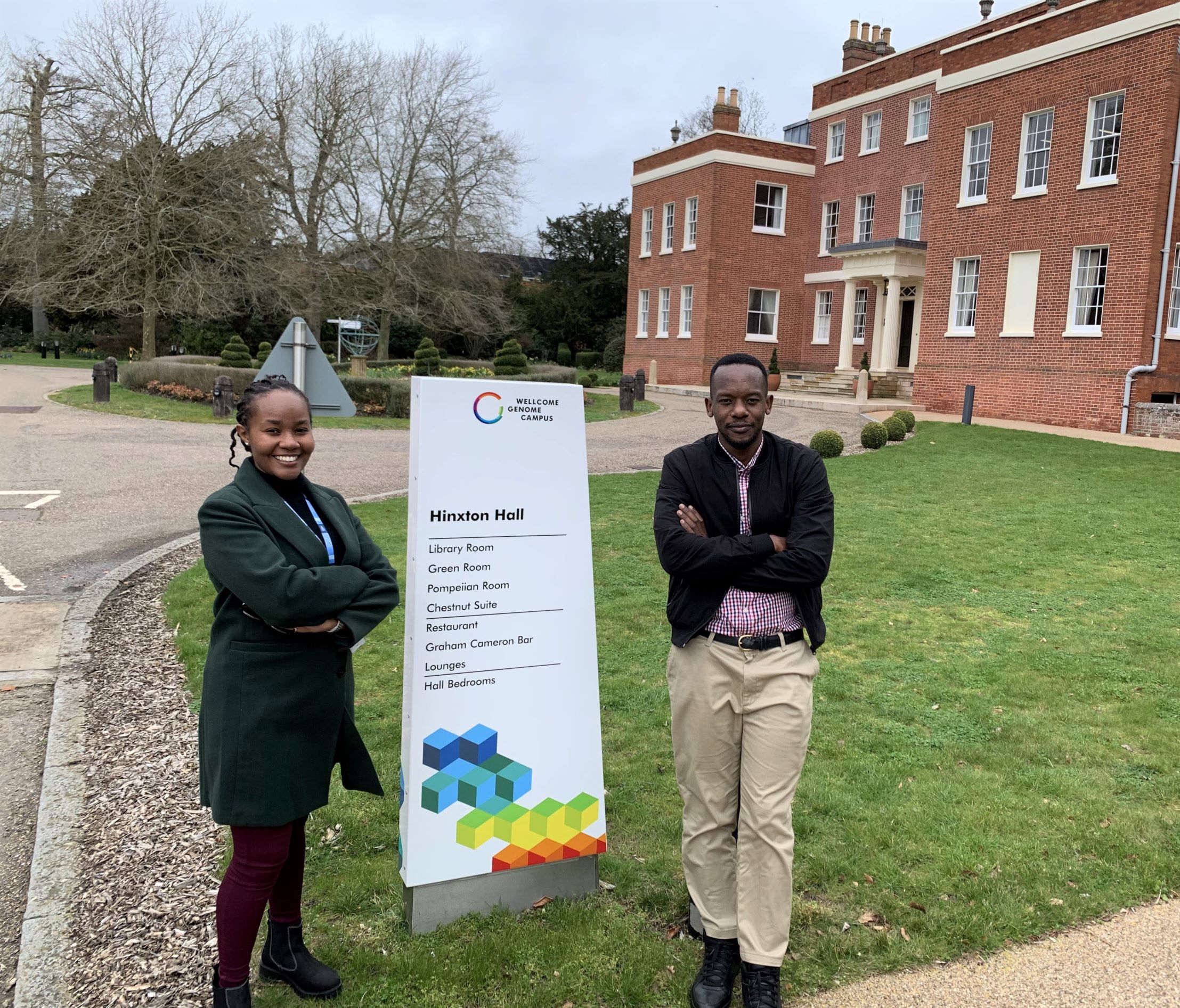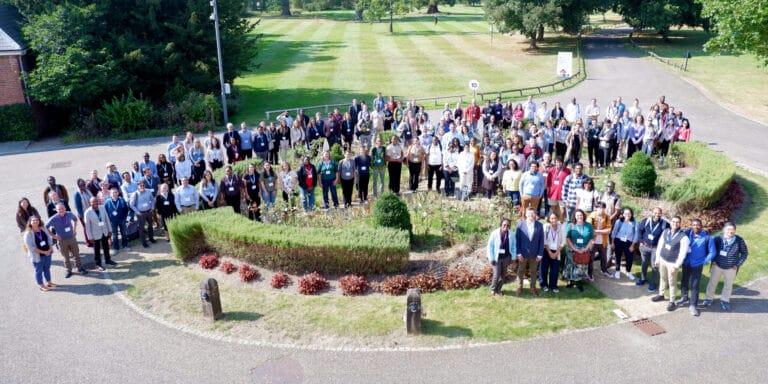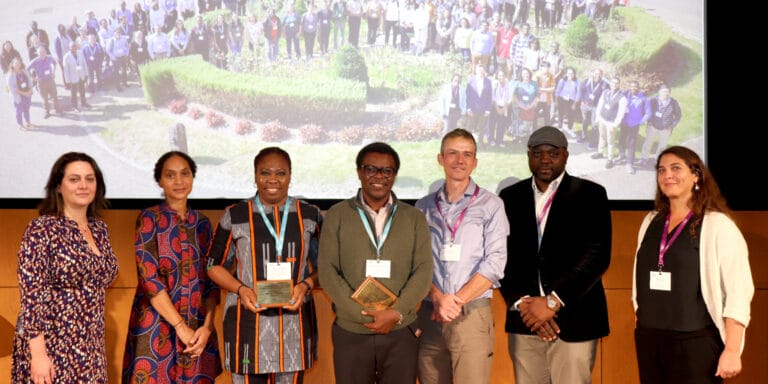
Jane
Jane is a bioinformatician with a mission: to use computational techniques to improve public health in Africa. She is usually based at PAMCA in KEMRI headquarters, Kenya, where she has worked on an exploratory analysis of Anopheles gambiae genomic data from The Gambia as part of the fellowship. Jane is now developing new skills in analysing mosquito data and collaborating with teams at the GSU.
At Sanger, Jane will be wrapping up on her data analysis rotation, where she explains how interesting findings such as insecticide resistance genes are usually discovered. “Every step is important and fits into each other. You get data from the sequencing platform, do a quality check on the data, which then goes through the vector variant calling pipelines, and then do the data curation. And that is when you can analyse the data to know what it is telling you.”
She is enthusiastic about using the MalariaGEN python package, which provides analysis-ready malaria vector genomic data on the cloud. “There’s a lot of effort that has been put into making the MalariaGEN python package. I think of it like a house with various rooms and various people doing various things to keep it running.” With storage capacity for large datasets being a challenge in most malaria-endemic regions, she especially appreciates that MalariaGEN_data allows quicker data analysis for genomic surveillance of malaria vectors. This means findings can be passed on to National Malaria Control Programmes more quickly, for timely public health decisions.
Jane’s curiosity and desire to continue learning and collaborating with others stands out. She is positive that the fellowship, including her time at the GSU, will be a launchpad towards achieving her goal of utilising computational methods to improve global health. But her ambitions don’t stop there – she’s determined to share her skills to empower other bioinformaticians to analyse regional malaria vector data and join in the global effort to combat malaria.
When she’s not busy changing the world, Jane can’t wait to explore the charming streets of Cambridge and soak up the vibrant culture of London, especially its world-renowned theatres.
Edward
Edward joins the GSU from PAMCA based in UVRI, Uganda, where he has taken an interesting approach to his fellowship. Having started his bioinformatics journey with a computer science and mathematics background, he is eager to broaden his understanding of vector biology. “I like to learn everything! The plan was to deepen my knowledge in the biological components, data surveillance, and then to go deeper into the genomics and the computational aspects of surveillance.”
He appreciates that his most recent rotation, which has focused on the PAMCA Bioinformatics Training course supported by MalariGEN, has been highly illuminating – he is now working on a mini-project where he can apply the data analysis techniques learned in the training course for malaria vector genomic surveillance. He also has a keen interest in taking collaboration to the next level, and he has found that his interests align with PAMCA’s goals through the fellowship. “This was an opportunity to apply my experience and skills to help the organisation get the right resources,” he explains. As part of this effort, he has been working with the MalariaGEN team at the GSU and other international partners to plan and deploy a high-performance computing cluster. This infrastructure will support the storage and analysis of malaria vector genomic data for all PAMCA partners.
Edward’s long-term goal is to contribute to the expansion of the bioinformatics community in Africa. “For me, the way I treat this, it should be translational, not just a skill that I get and hope to use someday. What I see and experience here [at Sanger] matters as it helps operationalise what I have learnt and translate that into the African research ecosystem.” He hopes that a regional hub in Africa would be a sustainable way to analyse, interpret, and communicate malaria genomic data locally.
In his free time, he is interested in exploring the world of auto mechanics, something which he thinks could be his “side hustle”. As an avid Manchester United supporter, he also hopes to watch them at the English FA Cup final at Wembley stadium.



